- Course Catalog (PDF)
- Agricultural and Resource Economics
- Allied Health
- American Sign Language*
- American Studies
- Animal Science
- Anthropology
- Art
- Asian and Asian American Studies*
- Biological Sciences
- Business
- Chemistry
- Chinese
- Civil Engineering
- Classics & Ancient Mediterranean Studies
- Communication*
- Computer Science and Engineering*
- Digital Media & Design*
- Dramatic Arts
- Earth Sciences*
- Economics
- Education
- English
- Engineering
- French
- German
- History
- Human Development & Family Sciences
- Human Rights
- Italian Literature and Cultural Studies
- Kinesiology*
- Latino & Latin American Studies
- Marine Science
- Maritime Studies
- Mathematics
- Mechanical Engineering
- Music
- Natural Resources and the Environment
- Nutritional Sciences
- Pharmacy
- Philosophy
- Physics
- Plant Science
- Political Science
- Public Health
- Sociology
- Spanish
- Statistics
- University
Digital Media & Design
Explore the UConn Digital Media & Design website for departmental information. Course descriptions below correspond to the UConn undergraduate directory of courses.
Below are the DMD courses offered through UConn ECE. For those applying for certification to teach a DMD course or courses, please be sure to review all information and details about course specific portfolio work to be submitted as apart of the application process. Please provide link with your application as to where your portfolio work can be referenced, making sure instructor and student portfolio samples are clearly identified.
DMD 1002: Foundations in Digital Media II
Three credits ($150). Offered Fall, Spring, or Full-year.
Introduction to the fundamentals of storytelling using a variety of practical digital media applications.
Eligibility Guidelines:
- Students must have the ability to access Adobe CC = computer + account, or another professional raster-based image editing suite, and professional-level video editing suite
- Students must possess digital literacy skills and can understand to set up a project and organize documents
DMD 1101: Design Lab I
Three credits ($150). Offered Fall, Spring, or Full-year.
Exploration of the creation, manipulation, and reception of digital images through project-based work using image-editing software. Through lecture, discussion, projects, and critique, students will develop, refine, and evaluate digital images and understand their artistic, social, and ethical ramifications.
Student Eligibility Guidelines:
- Students must have the ability to access Adobe CC = computer + account, or another professional raster-based image editing suite
- Students must possess digital literacy skills and can understand to set up a project and organize documents
- Students must have basic drawing skills
DMD 1102: Design Lab II
Three credits ($150). Offered Fall, Spring, or Full-year.
Theory, principles, and practices of digital screen-based visual communication. Through a multidisciplinary perspective involving art, design, art history, and media studies, students will address how culture visualizes screen-based communication through both image and type.
Student Eligibility Guidelines:
- Students must have the ability to access Adobe CC = computer + account, or another professional raster-based image editing suite, and professional-level video editing suite
- Students must possess digital literacy skills and can understand to set up a project and organize documents
DMD 2210: Film and Video Editing I
Three credits ($150). Offered Fall, Spring, or Full-year.
Introduction to digital editing, project management, working with sound, and time-based storytelling.
Student Eligibility Guidelines:
- Students must have the ability to access Adobe CC = computer + account, or another professional-level video editing suite
- Students must possess digital literacy skills and can understand to set up a project and organize documents
DMD 2500: Introduction to Game Design
Three credits ($150). Offered Fall, Spring, or Full-year.
Introduction to the principles of game design and development. History of the industry, story, and game mechanics.
Student Eligibility Guidelines:
- Students must have the ability to access a professional game development tool such as Unity, Unreal, Godot, or Construct3
- Students must possess digital literacy skills and can understand to set up a project and organize documents
Instructor Certification Requirements:
The minimum degree requirement for teachers wishing to teach Early College Experience Digital Media Design courses is usually a BA or BFA in Education, Design/Art/Film (or Game Development, Computer Science, Digital Media/Art for DMD 2500). Please provide link with your application as to where your portfolio work can be referenced, making sure instructor and student portfolio samples are clearly identified. Additional course-specific certification requirements are listed below.
DMD 1002 Applicants must possess a basic understanding of storytelling principles, narrative arcs, and how to utilize storytelling techniques in visual media. In addition, a qualified applicant must have a basic knowledge of design principles, visual aesthetics, photoshop, and adobe premiere (or similar editing software).
Instructor Work:
- At least one example of previsualization techniques such as storyboarding, mood boarding, and pitches
- At least three examples of effective storytelling using audio, photo, or video that adheres to the principles of design
Current Exemplary Student Work:
- Two items each. Storyboards, Pitches, Photography, Video, and Audio
DMD 1101 Applicants must possess a basic understanding of visual communication using elements and principles of design. In addition, a qualified applicant must demonstrate knowledge of standard typographic, photographic, and cinematic composition terms and principles, as well as and Photoshop (taught) Procreate or Gimp (optional).
Instructor Work:
- 5-10 examples of digital raster projects that demonstrate an understanding of color, value, light, silhouette, and discuss how the content in this work reflects a specific theme
Current Exemplary Student Work:
- 5-10 raster-based drawings and evidence of a critique-based practice
DMD 1102 Applicants must possess a basic understanding of visual communication principles and design techniques. In addition, a qualified applicant must have a basic knowledge of human-centered design and its relationship to typographic adjustments such as contrast and readability, and: Illustrator, After Effects, and XD (or similar editing software)
Instructor Work:
- 5-10 examples of digital raster projects that demonstrate an understanding of color, value, light, silhouette, and discuss how the content in this work reflects a specific theme
Current Exemplary Student Work:
- 5-10 vector-based drawings and evidence of a critique-based practice
DMD 2210 Applicants must possess a basic understanding of storytelling principles and narrative arcs, and how to utilize storytelling techniques in visual media. In addition, a qualified applicant must have a basic understanding of design principles and visual aesthetics as well as photoshop and adobe premiere (or similar editing software).
Instructor Work:
- At least one example of previsualization techniques such as storyboarding, mood boarding, and pitches
- At least three examples of effective storytelling using video that adheres to the design principles of film
Current Exemplary Student Work:
- Two items each. Storyboards, Scripts, Three to five short films
DMD 2500 Applicants must possess a basic understanding of game design principles and implement them in a visual scripting or programming language. In addition, a qualified applicant must have a basic knowledge of either 2D or 3D graphics in run-time environments and a professional off-the-shelf game engine.
Instructor Work:
- One to three examples of games or apps implemented through a coding language such as C# or Python or visual scripting. (Include code samples or screenshots of your scripts)
- At least two examples of digital or analog projects such as card games or custom Role-Playing Game campaigns that adhere to the principles of game design and storytelling
Current Exemplary Student Work:
- 3-5 games that adhere to the principles of game design, 2-4 code samples (visual scripting screenshots are acceptable)
Instructor Resources:
DMD 1002 Sample Syllabus (PDF)
DMD 1101 Sample Syllabus (PDF)
DMD 1102 Sample Syllabus (PDF)
DMD 2210 Sample Syllabus (PDF)
DMD 2500 Sample Syllabus (PDF)

